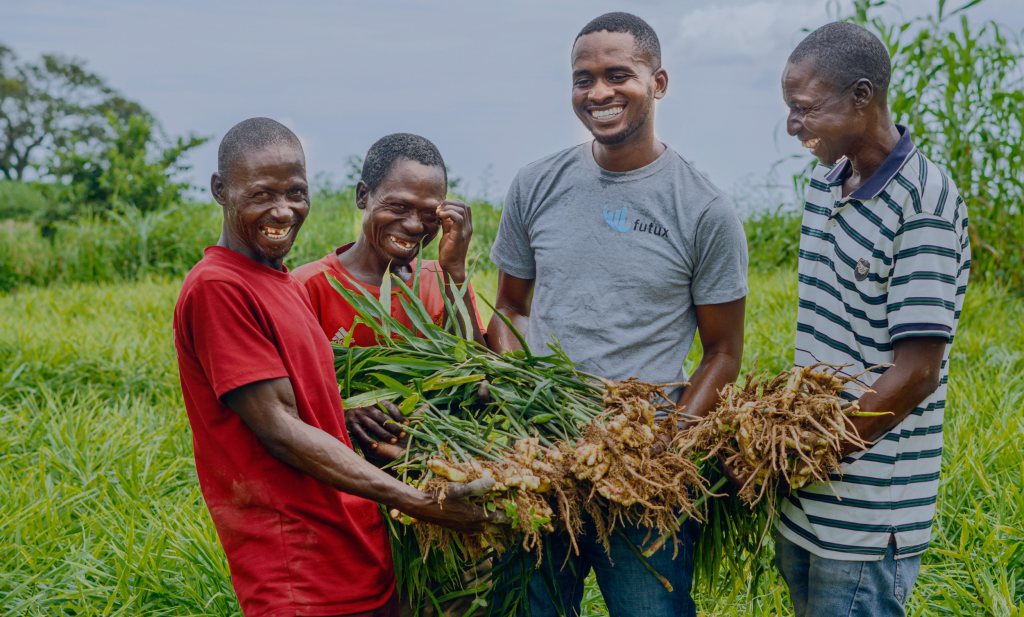In many developing countries, a smallholding farm is a business case; as it empowers and engages millions of rural populace in economic activities – a source of employment and livelihood. Also, it is transgenerational; smallholding enterprises are passed from one generation to another, with or without the required knowledge to operate as documentation of activities is largely informal.
Sadly, the majority of small holding farms do not expand or grow as such capacity is limited and the necessary knowledge is not easily accessible to all. Therefore, it is important we develop a new generation of farmers who can improve the operational efficiency of smallholding farms, expand its operations and increase productivity for food security.
There is a need to address the information gap between two generations of farmers as knowledge seems lost when older smallholder farmers die and there is no continuity of his or her legacy, including production secrets; indigenous knowledge. Aged smallholder farmers do not have a concrete succession plan rather than for their children or extended family members to take over but the capacity to continue the work is lacking or not transferred, which makes sustainability a big issue especially in developing countries where documentation of field activities is limited or not a practice. Therefore, we need to develop a system where interventions will focus not only on older smallholder farmers but incorporate their family members and prepare them for the future.
We need more skilled farm families who have built capacity to manage not just the farm activities, but the business of farming to improve the productivity achieved and also increase efficiency at the farm level. We need a new generation of farmers who perceive farming as a business, operate farming as a business, and envision farming as a means for shared prosperity. Smallholding farming could be a leverage for local economic development if more valuable activities are created (with the right knowledge and skills). In addition, interventions at farm level should focus on succession plans; incorporating more youths and encouraging information sharing between older and younger farmers. This is to encourage intergenerational knowledge sharing and also documentation of important indigenous knowledge.
This is a call for all relevant stakeholders to come together to promote the new face of the smallholding model where farmers understand the business of production, seek knowledge, increase productivity and enjoy prosperity with other farmers. Let us create the new farmers of the future with a bigger drive for food security and shared prosperity. The future is here, let us embrace it now!
Yours-in-Service
Babatunde
#Smallholdingfarm #Businessmodel #Zerohunger #Sustainability #Foodsecurity
There is a need to address the information gap between two generations of farmers as knowledge seems lost when older smallholder farmers die and there is no continuity of his or her legacy, including production secrets; indigenous knowledge. Aged smallholder farmers do not have a concrete succession plan rather than for their children or extended family members to take over but the capacity to continue the work is lacking or not transferred, which makes sustainability a big issue especially in developing countries where documentation of field activities is limited or not a practice. Therefore, we need to develop a system where interventions will focus not only on older smallholder farmers but incorporate their family members and prepare them for the future.
We need more skilled farm families who have built capacity to manage not just the farm activities, but the business of farming to improve the productivity achieved and also increase efficiency at the farm level. We need a new generation of farmers who perceive farming as a business, operate farming as a business, and envision farming as a means for shared prosperity. Smallholding farming could be a leverage for local economic development if more valuable activities are created (with the right knowledge and skills). In addition, interventions at farm level should focus on succession plans; incorporating more youths and encouraging information sharing between older and younger farmers. This is to encourage intergenerational knowledge sharing and also documentation of important indigenous knowledge.
This is a call for all relevant stakeholders to come together to promote the new face of the smallholding model where farmers understand the business of production, seek knowledge, increase productivity and enjoy prosperity with other farmers. Let us create the new farmers of the future with a bigger drive for food security and shared prosperity. The future is here, let us embrace it now!
Yours-in-Service
Babatunde
#Smallholdingfarm #Businessmodel #Zerohunger #Sustainability #Foodsecurity
Related



